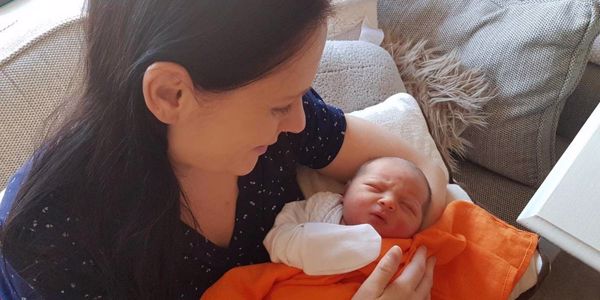Ever wondered why your midwife checks your blood pressure so intently at every antenatal appointment? There are a few reasons, but one of the main reasons: they’re checking for early signs of pre-eclampsia.
Pre-eclampsia is usually a mild condition that can affect women during pregnancy, birth, or soon after. It can, however, be rather serious, which is why it’s important to be monitored so that it can be discovered and treated early.
After already having a shitty time with Hyperemesis Gravidarum, I was unlucky enough to also experience pre-eclampsia. For me, it started in my third trimester. At about 34 weeks, my midwife started noticing I had high blood pressure. At first, she just kept an eye on it - asking me to come back in a day or two’s time for another check. A week or so later, when it hadn’t returned back down to normal, she sent me to hospital to get checked over. They would lay me down, strap me up to the CTG and take my blood pressure whilst I laid there for a couple of hours bored out of my mind. Each time, by the end of the two hours, my blood pressure would have returned to normal, the baby was always fine, so they sent me on my way, telling me to take it easy and put my feet up as much as possible. This happened a few times, and I remember getting increasingly annoyed – I got that gut feeling that maybe something wasn’t quite right.
My gut feeling was correct – I had an antenatal appointment when I was 37 weeks and 6 days pregnant, and upon taking my blood pressure, the midwife looked at me and reluctantly said ‘I’m sorry, you’re going to have to go to hospital again’. My partner and I weren’t thrilled, as we knew how this went… except this time, it was different. I was ushered into a private room. The midwife took my blood pressure and was alarmed, running out to talk to colleagues. When she came back in, I was given medication and told in no uncertain terms: if this medication does not bring your blood pressure down to a safe level within 2 hours, you’re not leaving hospital. Spoiler alert: it didn’t.
I was given a bed on the high-risk ward and told I wasn’t allowed to leave hospital. The next morning, still a little clueless as to what this actually all meant, afew doctors came to see me, and the conclusion was that because I was, that day, exactly 38 weeks pregnant, I had to give birth to my baby. Giving birth is the only cure for pre-eclampsia, so the treatment is often to monitor mum and baby in hospital until they reach full term. Because they had managed to get my blood pressure mostly under control, I was to be induced, but very much aware of the fact that if at any point my blood pressure took a turn for the worst, I could get taken in for an emergency caesarean.
From this point on, it felt like we were in a bubble. Everything seemed so surreal. We went from a routine midwife appointment to being diagnosed with potentially life-threatening pre-eclampsia. I needed to give birth to my baby sooner than nature intended else I could experience seizures, or in the absolute worst-case scenario, a coma or death – that’s just not something you ever expect to hear as a pregnant woman.
One day, during my lengthy induction, I started getting more symptoms for concern – my vision was blurring, I was getting awful headaches and my feet, hands and arms were swelling up with water retention. That got me a very rapid higher dose of medication and a bump up the list for the delivery suite. Things were getting worse! Fab.
My actual induction itself was hell, but that’s a whole other story.
This does have a happy ending, though – I gave birth to my beautiful baby boy, and I survived seizure-free to tell the tale. My blood pressure returned to normal levels soon after birth and my pre-eclampsia was deemed cured. Yay!
I cannot stress enough how scary it was to be diagnosed with pre-eclampsia, and it feels even scarier now knowing that I am at higher risk of developing it even earlier during pregnancy if I have another. What if I developed pre-eclampsia even earlier than I did during my first pregnancy? I could, potentially, be in hospital being monitored for weeks.
If you’re pregnant and reading this – please, take it easy! Keep an eye on that blood pressure and always, always, ALWAYS tell your midwife of any blurred vision, headaches, aches and pains or any other symptoms of concern. Sure, your headache could be from staring at your phone for too long, or it could be a symptom of a life-threatening condition. Don’t take your chances.






